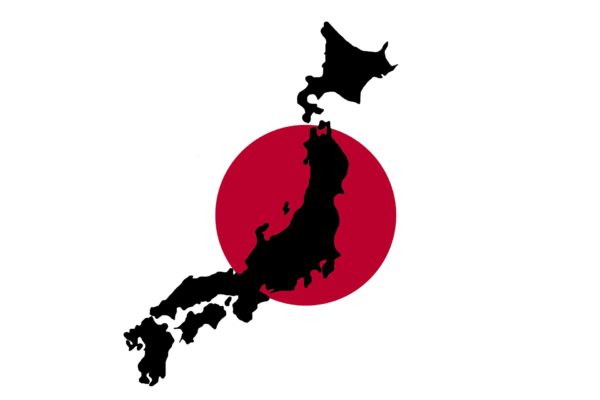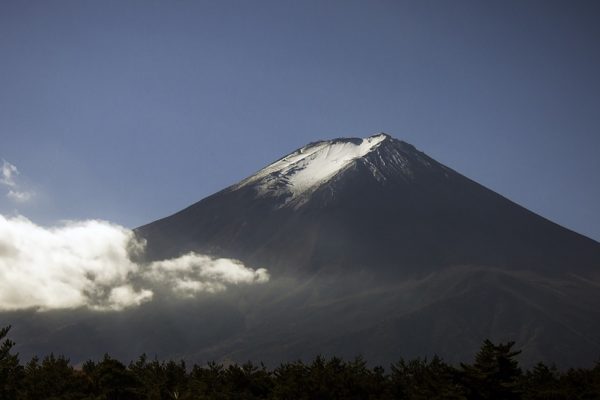Life in Japan may sound very exciting! And believe me it is. But the Land of the Rising Sun is famous for its earthquakes. In 2011 a huge earthquake hit the Tohoku Region, while in 2016 another massive earthquake took place in Kyushu. This might sound scary, which it obviously is, but fret not. With as many as 1,500 yearly earthquakes Japan has found amazing means to deal with them. If you follow all of the guidelines, chances are you will be fine.
When I arrived in Japan in the spring of 2016, the first earthquake experience was quite the shock, even though I originate from a country where earthquakes happen every now and then. The ones I’ve had experienced so far came and went away in an instant, they were so fast the people around me were doubting if it was an earthquake or just the play of imagination. But the ones I got to go through in Japan were long, so very long that the only way I can describe my feelings would be “creeped out”. It’s also important to keep in mind that the earthquakes with high magnitudes here usually have aftershocks which can happen anytime within 24 hours from the original quake.
Living in Tohoku region I got to experience quite a few in the span of two years. With time you get used to them and even start ignoring most of the earthquakes. Which is fine, really. Unless your phone starts screaming at you and you can hear sirens going off throughout the whole city. Something I’ve experienced only once so far (if we don’t count the missile warnings).
My phone went off around 5 in the morning, on a night when I barely got any sleep. Keep in mind that these alarms go off about a minute before the earthquake actually hits. It was a large one, with many aftershocks in the next 24 hours. Funnily enough the main earthquake itself was an aftershock of the one that hit Tohoku region in 2011, the Great East Japan Earthquake. Everything was shaking for about a whole minute, if not longer, things were falling down from the drawers all around me, and it did feel like the end of the world. But then things calmed down. It might have been because of the lack of sleep, but the confusion was driving me crazy and I didn’t know what to do. I just put my safety helmet on and hid under my desk. This event drove me to do better research, in case another big quake hits the region. And in this article I want to tell you how to behave when it does happen.
First and foremost, it is important to understand why there are so many earthquakes in Japan. The reason lies in the location of Japan itself. The four islands are situated at the junction of tectonic plates. The country has experienced about 25 devastating earthquakes in the past century. Quakes can be felt all over the country on daily basis. Earthquakes have been and still are a part of Japanese life, to a point that they even have a backstory in Japanese mythology. However, as a result of this lifelong struggle against earthquakes the Japanese have come up with buildings that do not budge to earthquakes. If some buildings do get destroyed, those are in general quite old. As a matter of fact, the people in Tohoku like to say “we aren’t afraid of earthquakes, because all of the buildings that may fall victim to one, already have in the Great Earthquake of 2011”.
When arriving in Japan make sure to get a warning application on your phone. If you buy a phone in Japan, then you will have it built-in, if you don’t then you can easily find one on both PlayStore and App Store. I personally recommend an app called Disaster Kit. This was the one that was built-in in my phone. It comes in Japanese but you get the option to translate the warning messages to English. Another popular application would be Safety Tips, released by JTA (Japan Tourism Agency), also available on both Android and iOS.
If you are in Japan for a long-term stay there are some precautions you need to take care of. Have all of your important documents in one place so you can easily take them out and put them in your bag if needed (you don’t want to be stranded in a foreign country without a passport, now do you?). Make sure to store a couple of liters of water at home at all times, and in addition to this have a stock of cup ramen. If a major earthquake occurs you might have no electricity or water for a few days, and believe me you will most definitely not be able to buy any of these in the stores either. Cup ramen is a good choice since it lasts for a long time, and you can eat it with cold water if you have to. It might not taste great, but hey, food is food.
When you are all stocked up make sure to check where is the closest safety area. These are usually located in the schools nearby, as well as other large buildings. If the earthquake is strong enough to make the sirens in the city and your phone go off, it might be a good idea to move to the safety area. Here you will get assistance and guidance for further actions.
What to do when you are in a building?
If you find it hard to get out of wherever you are, per say you are at work or at school, get under a table or a desk to protect yourself from major injuries. When things calm down start collecting water everywhere you can. In case of a huge earthquake one of the biggest inconveniences is the inability to flush the toilet, hence collecting water in your sink or bathtub might come in handy.
If you have important people to call to, do that within half an hour after the shake. Keep the calls short and limited to a minimum number of people. Make sure to carefully store your cell phone battery, since you might not get a chance to charge it for a while.
Before evacuating make sure to switch off the breaker, even if there is an outage at the moment. When evacuating avoid elevators and escalators and go for the stairs. It might also be a good idea to take a flashlight with you, especially if the earthquake occurs in the middle of the night.
What to do when you are outside?
Try avoiding utility poles and buildings to the best of your ability. These are quite dangerous since they can break, fall down and injure you. If you find yourself surrounded by high-rise buildings, protect your head with your bag and be cautions of breaking windows.
Don’t rush around! Keep calm, avoid confusion and commotion. Panic is your worst enemy in such situations. You will need to be thinking straight, since an aftershock might hit the region at any moment.
These are some of the basic, yet crucial and must-know actions in case of an earthquake in Japan. I do hope you will not get to experience a massive earthquake and will never have the need to following these tips, but it is always better to be safe than sorry!


